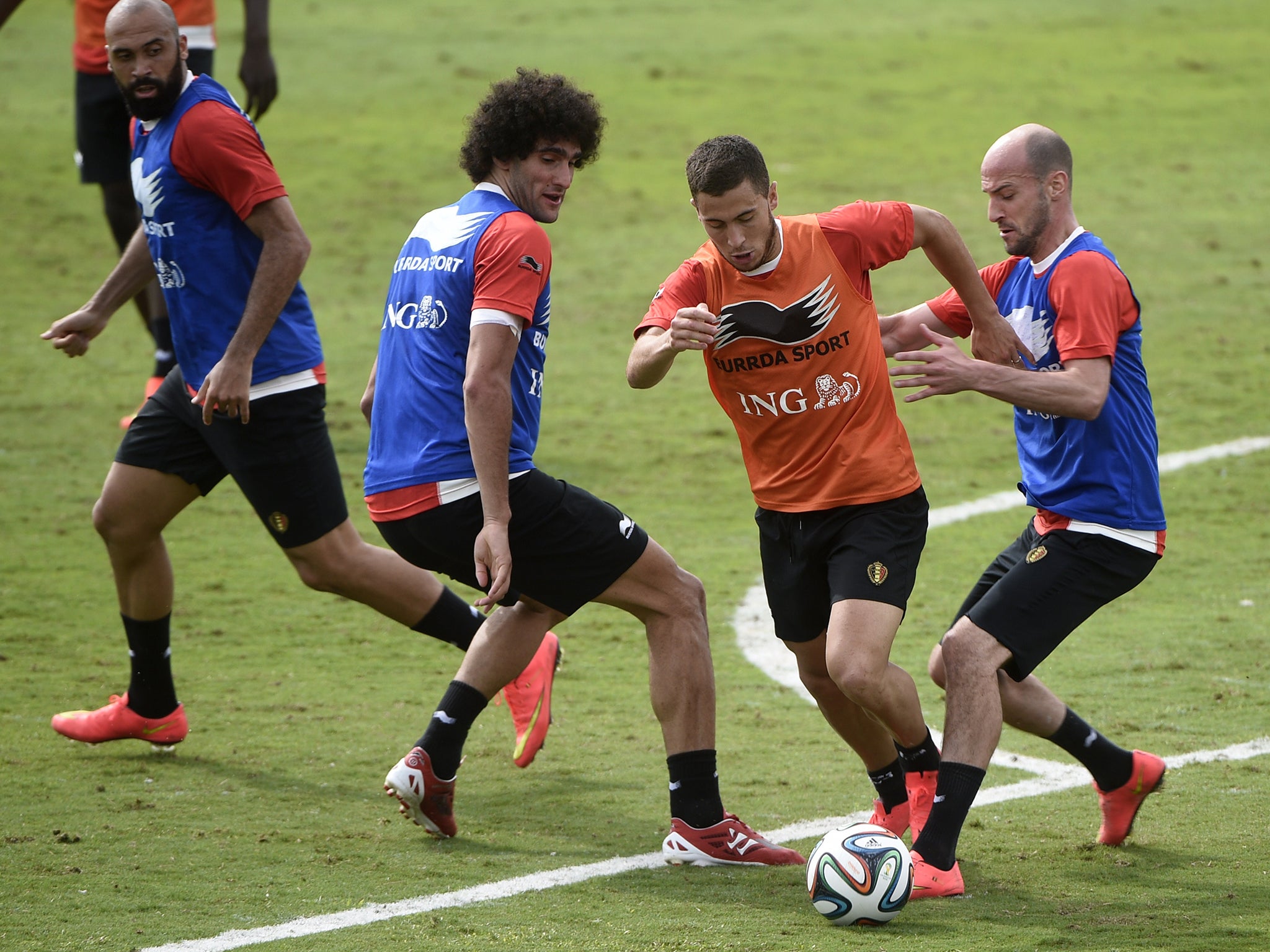World Cup 2014: The myth about Belgium's 'golden generation'
Numerous top players have emerged at the same time for Belgium and consequently many are backing them to go far in the World Cup. But how did they end up with such a talented group of players?

The most heavily backed of dark horses canters into the World Cup arena on Tuesday night when Belgium take on Algeria in Belo Horizonte. From absentees to contenders in four years, it is quite a transformation and the Belgian FA are understandably keen to take the credit for it.
Michael Sablon, their former technical director, has been quoted extensively in the English media describing how his masterplan helped produce this ‘golden generation’. However, before our FA are told to rush to Brussels, notebook in hand, the dates do not add up. The truth may well be that the Belgian have in large part got lucky, aided by societal and geographical factors.
Sablon’s ‘vision', which involves some widely practiced aspects also adopted here, such as small-sided games, increased contact time and no league tables for under 8s, but also a prescriptive Dutch-style 4-3-3 playing system and centralised coaching schools, was published in 2006. Since it is widely accepted the years from 6-11 are key to the technical development of players that would mean its graduates would now be 14-18. None of Marc Wilmots’ squad are in that age range.
Several players at the World Cup did go through the coaching schools, and will have benefited, in their teenage years, from the other changes. But of the current squad only six were under 16 in 2006: Thibault Courtois (14 during 2006), Kevin De Bruyne (15), Romelu Lukaku (13), Eden Hazard (15), Divock Origi (11) and Adnan Januzaj (11). Eight of Roy Hodgson’s England squad were under 16 on New Year’s Day 2006, so maybe the geniuses are at England’s FA.
There are three factors which appear to have been at least as influential as anything the Belgian FA did. Most important a significant number had much of their professional football education elsewhere. In 2006 Belgium’s best player, Hazard, was already across the border in France having joined Lille at 14. Origi went there aged 15, Kevin Mirallas at 16. The Netherlands was the main destination - Dutchman Jimmy Floyd Hasselbaink, who managed Royal Antwerp last season, told The Independent Dutch coaches were way ahead of their Belgian counterparts who were 'too defensive'. Thomas Vermaelen, Jan Vertonghan, Moussa Dembele and Nacer Chadli and Toby Alderweireld were all playing there by the time they were 16, mostly at Ajax. Meanwhile Januzaj went to Manchester United at 16.
Nine players are the sons of immigrant families. Januzaj, Dembele, Lukaku, Chadli, Origi, Marouane Fellaini, Vincent Kompany, Anthony Vanden Borre and Axel Witsel all had at least one parent born outside Belgium. These ‘new Belgians’ a former divide between the French-speaking south and Flemish-speaking north. There is also genetics. Four of the current squad had fathers who were professional footballers: Hazard, Origi, Lukaku and Fellaini.
Who does that leave? How about Thibault Courtois and Dries Martens, both identified as players who developed in the coaching schools. Courtois did not play for a Belgian age-group team until the U-18s, and has been on Chelsea’s books since he was 19. Martens was stuck in the Dutch second division at the age of 22 having been released by Anderlecht and Gent without playing a match.
There will have been players whose development has been enhanced by the Belgian FA’s improvements, and an insistence on clubs releasing players for youth tournaments has paid off, but to suggest they have created a golden generation is a fantasy. What may yet happen is that the blueprint designed by Sablon, who retired in 2012, ensures this windfall crop is augmented by a regular flow of young players and, instead of fading like the generation that reached the 1980 European Championship final and 1986 World Cup semi-final, Belgium becomes an established force like their Dutch neighbours. But we will not know that for another ten years.
Join our commenting forum
Join thought-provoking conversations, follow other Independent readers and see their replies
Comments